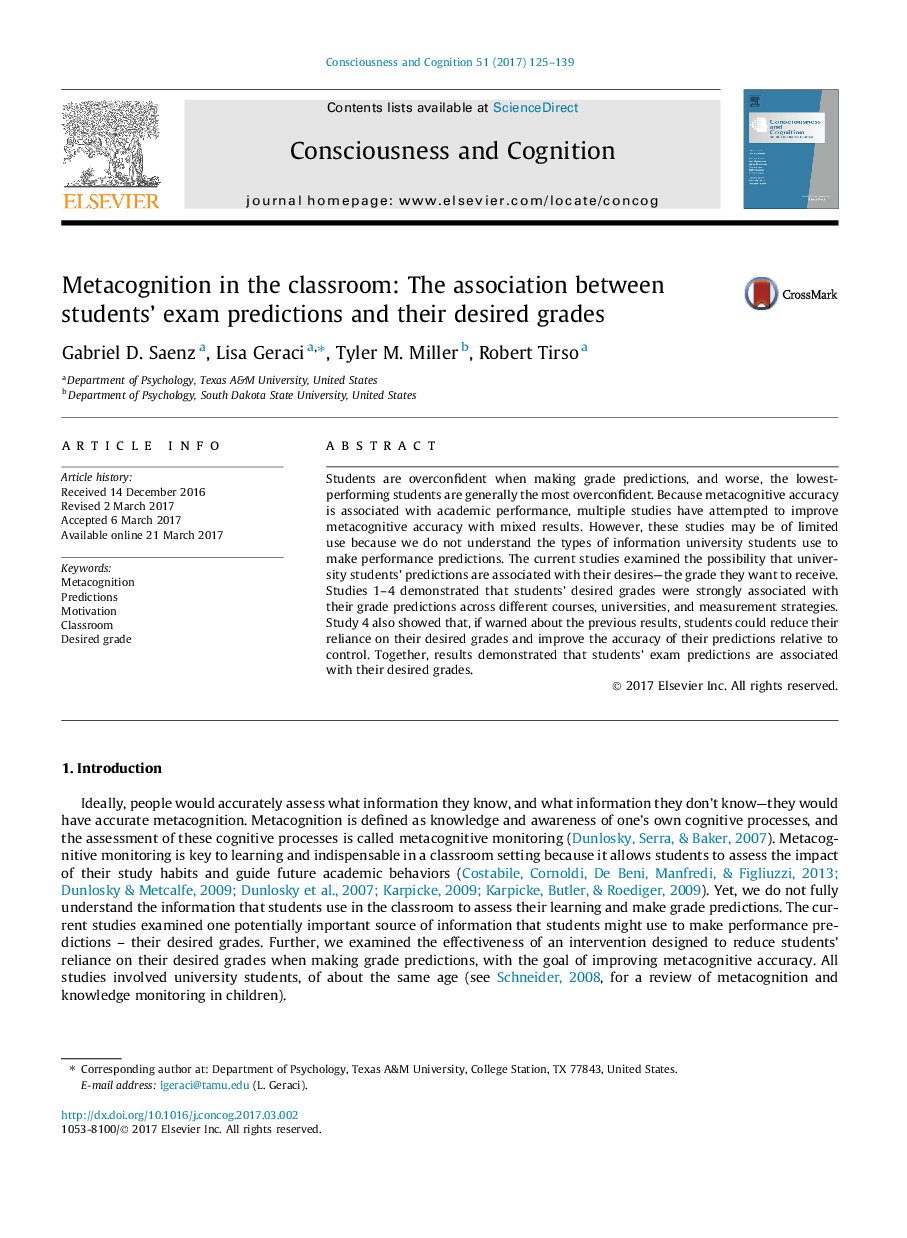| Article ID | Journal | Published Year | Pages | File Type |
|---|---|---|---|---|
| 5041840 | Consciousness and Cognition | 2017 | 15 Pages |
â¢We examined if students' grade predictions are associated with their desired grades.â¢Results showed that students' desired grades were associated with their grade predictions.â¢Results also showed that, if warned, students could improve the accuracy of their predictions.
Students are overconfident when making grade predictions, and worse, the lowest-performing students are generally the most overconfident. Because metacognitive accuracy is associated with academic performance, multiple studies have attempted to improve metacognitive accuracy with mixed results. However, these studies may be of limited use because we do not understand the types of information university students use to make performance predictions. The current studies examined the possibility that university students' predictions are associated with their desires-the grade they want to receive. Studies 1-4 demonstrated that students' desired grades were strongly associated with their grade predictions across different courses, universities, and measurement strategies. Study 4 also showed that, if warned about the previous results, students could reduce their reliance on their desired grades and improve the accuracy of their predictions relative to control. Together, results demonstrated that students' exam predictions are associated with their desired grades.
